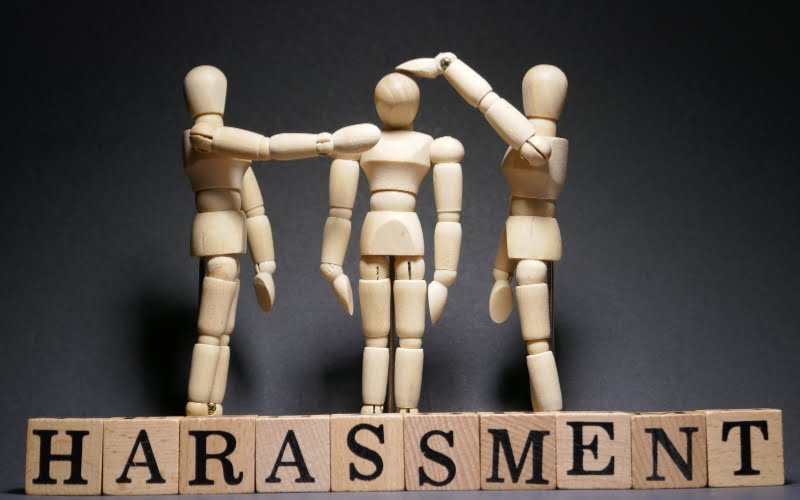Last Updated on March 18, 2024 by Kelvin Nielsen
First off, landlord harassment in Colorado is illegal. It’s among the list of things that a landlord cannot do in Colorado. It occurs when a landlord willingly creates a situation intended to make a tenant uncomfortable, which would contradict your right to quiet enjoyment
Under the implied warranty of quiet enjoyment, you have a right to enjoy your rented premises in peace and quiet. It would, therefore, be illegal for your landlord to try to make your stay uncomfortable through certain illegal actions.
In this blog, we’ll walk you through everything you need to know regarding landlord harassment in Colorado. This way, you’ll not only understand the rights you have, but also what actions you can take against the landlord.
Related Post: How to Report a Landlord in Colorado: A Clear Guide
What Landlord Actions Can Constitute Landlord Harassment in Colorado?
Landlord harassment can take many different forms, from intimidation, to retaliation, to abusive behavior. The following are some examples.
#1: Entering your rented unit repeatedly without permission.
As a renter in Colorado, you have a right to privacy. And although there is no state law on landlord entry, landlords usually notify tenants before entry. This helps avoid potential issues in the future regarding privacy violations.
The landlord must also have a legitimate reason for entry. Such as, to inspect the unit, carry out a repair, or show the unit to a prospective tenant or buyer.
#2: Repeatedly calling or texting you at unreasonable hours.
What constitutes “unreasonable hours” may vary depending on the jurisdiction. However, it’s typically considered to be outside of regular business hours, which is normally between 8 am and 5 p.m. on weekdays.
The only exception to this would be if you agree to be contacted at all hours or in case of an emergency.
#3: Making threats of eviction.
Threatening a tenant with an eviction is illegal as per Colorado landlord-tenant law (Colorado Statutes Title 38 Article 12). For a landlord to carry out an eviction, they must first have a just cause. In other words, the landlord cannot evict you for just any reason.
In Colorado, examples of just causes for eviction include failure to pay rent, illegal activity, and violation of the lease.
#4: Refusing to make repairs on time.
This is another common type of landlord harassment in Colorado. As a tenant, you have a right to live in a habitable rental property. That is, a property that abides by the basic health, safety, and building codes.
By refusing to make the requested repairs to your unit, your unit may effectively become uninhabitable. This may give you certain rights. Including, withholding rent payments, suing the landlord, or breaking the lease without penalty.
Other Examples of Landlord Harassment
In addition to the aforementioned examples, landlord harassment in Colorado may also occur in any of the following ways.
- Retaliating against you for exercising a legal right, such as reporting the landlord to a local health agency for unlivable conditions.
- Turning off your utilities.
- Removing your personal belongings from the unit.
- Locking you out of your rented premises.
- Spreading rumors about you.
Frequently Asked Questions (FAQs): What Is Landlord Harassment in Colorado?
Q: How do I Report Landlord Harassment in Colorado?
A: As already mentioned, landlord harassment is illegal under both local and federal laws. If you have reasons to believe you have been a victim of landlord harassment, you can contact the Colorado Housing Connects for help. You can reach them by dialing (844) 926 6632.
You could also file a complaint with the Colorado Civil Rights Division. The division will investigate your complaint and take necessary action against the landlord if they find merit.
Another option would be to file a lawsuit in court. If successful, the court may award you damages, as well as court and attorney fees.
Q: Can a Tenant Refuse Entry to a Landlord in Colorado?
A: Absolutely! You may be able to refuse landlord entry under certain situations in Colorado. To begin with, you can refuse entry to your landlord if they don’t have a legitimate reason. Legitimate reasons for landlord entry in Colorado include:
- To make repairs or maintenance
- To respond to an emergency
- To comply with a court order
- To show the unit to a prospective tenant or buyer
Furthermore, the landlord must also abide by the notice requirements. Go through the lease to know how much notice the landlord must provide you with prior to entry. A 24 hours’ advance notice is typical.
Lastly, the entry time must be reasonable. Unless otherwise agreed, the landlord can only access a tenant’s unit during normal business hours.
Q: What rights do renters have in Colorado?
A: Just like renters in other states, renters in Colorado enjoy a smorgasbord of rights under the statewide landlord-tenant law.
Conclusion
Landlord harassment in Colorado is illegal in all its forms. As a renter, you have a right to peace and quiet while renting your rental unit. If you have a question regarding landlord harassment, please leave a comment below for expert advice.
Disclosure: The content herein isn’t a substitute for advice from a professional attorney. It’s only meant to serve educational purposes. If you have a specific question, kindly seek expert attorney services.
Sources: Colorado Landlord Tenant Laws, Colorado Housing Connects, Colorado Civil Rights Division, Colorado Renters Rights,

I am a real estate attorney with over 11 years of experience in tenant eviction cases. My mission here at LTRC is to help answer your commonly asked questions on everything regarding real estate laws, especially on eviction matters.
I’m a member of the following professional organizations: Attorneys’ Real Estate Councils of Florida (ARECs), Florida Bar Real Property, Probate & Trust Law Section, American College of Real Estate Lawyers (ACREL), and the Florida Association of Community Managers (FACM).







